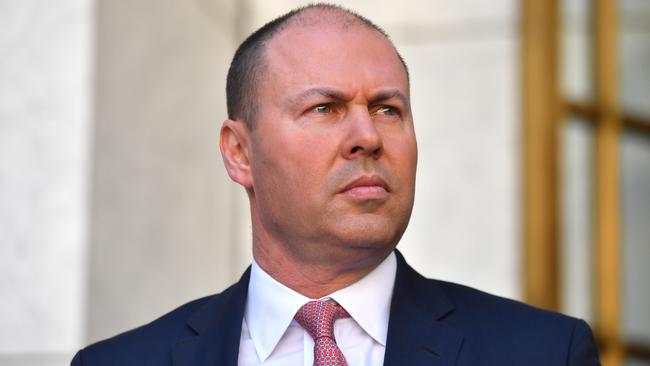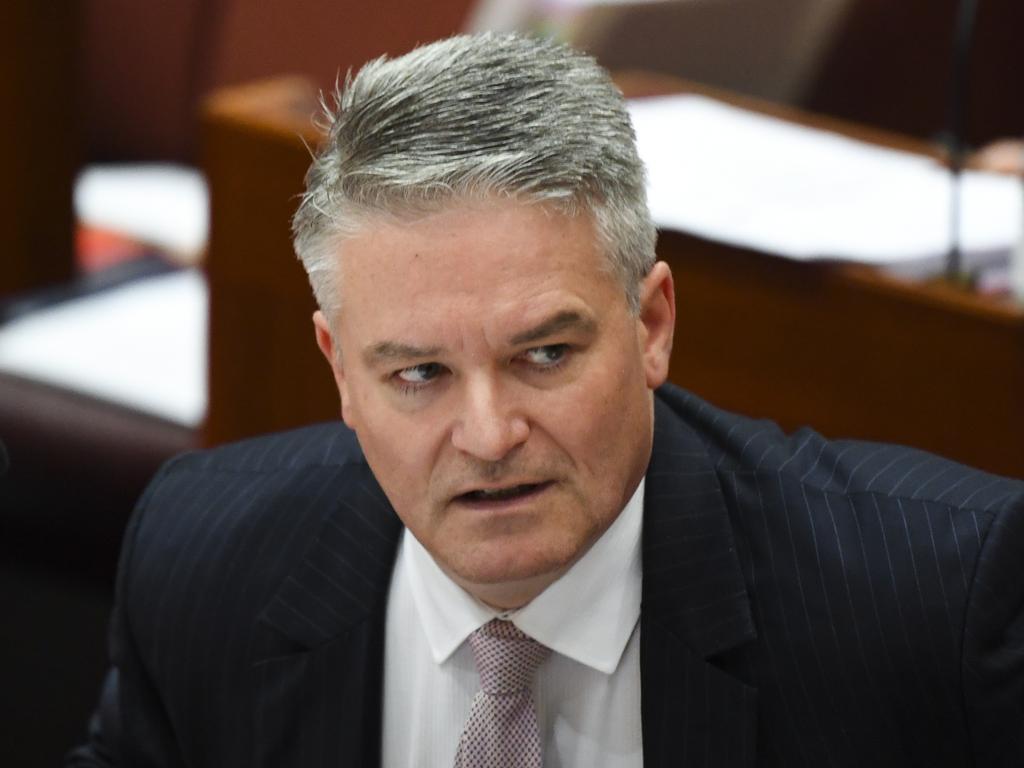Five Eyes expanded to focus on economic pact
Australia, the US, UK, Canada and NZ agree to discussions about a co-ordinated strategic economic response to the COVID-19 crisis.

The Five Eyes intelligence network of Australia, the US, Britain, Canada and New Zealand has agreed to discussions about a co-ordinated strategic economic response to the COVID-19 crisis in a broadening of purpose for the world’s largest security alliance.
It is understood Australia has locked in support for an economic grouping within the key intelligence pact as Western democracies seek to forge closer alliances with economic security emerging as a key strategic threat.
It comes as Britain overnight moved to secure a Five Eyes agreement to develop “Western” alternatives to China’s Huawei 5G technology, and follows the move last week by the Morrison government to apply a national security test to foreign investment, which is now being adopted by other alliance member countries.
Josh Frydenberg is understood to have led the push for an economic dialogue and confirmed last night that he had spoken to the finance leaders of the US, UK, Canadian and New Zealand governments over the past two weeks, and had received backing for regular formal meetings.
The agreement is seen by security experts as a hardening of the alliance between Western democracies in response to China, and the elevation of the Five Eyes alliance — which was forged after World War II in response to the Soviet threat — as central to a post-coronavirus world.
All Five Eyes countries are members of the OECD and, with the exception of New Zealand, are members of the G20. Australia was recently invited by US President Donald Trump to join the G7 in a further signal that the US is moving to bolster the traditional Western alliance. “Our nation, working across geographical and political boundaries, has made great progress in protecting the lives and livelihoods of Australians from COVID-19 but there is still a long way to go,” the Treasurer told The Australian.
“COVID-19 is a once-in-a-100-year global event, and governments around the world have had to put in place unprecedented levels of spending to protect their people and support their economies. Notwithstanding the success of the health measures that have been put in place, they have come at a significant economic cost.
“These meetings will be an opportunity to swap notes about the various domestic economic initiatives each country is undertaking in response to the crisis.
“In this increasingly inter-connected global economy, it will also be critical that we co-ordinate policies to ensure global financial stability and a strong, sustainable and balanced economic recovery.”
Mr Frydenberg said the dialogue would seek to co-ordinate responses to the economic impacts of COVID-19, the implementation of government responses, and priorities and pathways for a global recovery.
The attendees will include Mr Frydenberg, US Treasury Secretary Steven Mnuchin, the UK’s Chancellor of the Exchequer Rishi Sunak, Canadian Finance Minister Bill Morneau and New Zealand Finance Minister Grant Robertson.
The move comes as Britain has sought to form a deeper relationship with Australia and other partners to move against China’s expanding reach into technology, after the US threatened to withdraw security-sharing arrangements within Five Eyes if the British government moved ahead with its initial decision to allow Huawei into its 5G network, before Prime Minister Boris Johnson scuttled the plan.
The UK National Security Council last week approved Mr Johnson’s plans to end reliance on Chinese technology and turn instead to Australia, the US, Canada and New Zealand for expertise in key infrastructure.
The NSC signed off on the clawback of Chinese technology company Huawei’s 35 per cent involvement in Britain’s new 5G telecommunications system and now desires a Western solution to plug technology gaps.
The executive director of the Australian Strategic Policy Institute, Peter Jennings, said Five Eyes was gaining stronger relevance amid the strategic tensions that had emerged during the pandemic but that the economic crisis was now a paramount security issue.
“They’ve been pointing in this direction — foreign investment, critical infrastructure and 5G … and security now has a stronger domestic dimension to it, such as cyber and IT networks, Mr Jennings said.
“The crisis has made us all vulnerable to supply chains … and a lot of that has to be reconsidered.
“Now there is an understanding that we have to address the security implications of the economic relationships in a way we haven’t had to since World War II.
“I think, increasingly, that what Five Eyes will do … it will have to evolve into those areas to create a shared approach on how democracies deal with those things.
“I think the other point of Five Eyes is that it does bring like-minded democracies together against an authoritarian challenge. Principally, when it was set up after World War II, it was dealing with the Soviets (but) most conversations within Five Eyes now are about China,” he said.
“And it is good that Australia is taking a leadership role.”








To join the conversation, please log in. Don't have an account? Register
Join the conversation, you are commenting as Logout